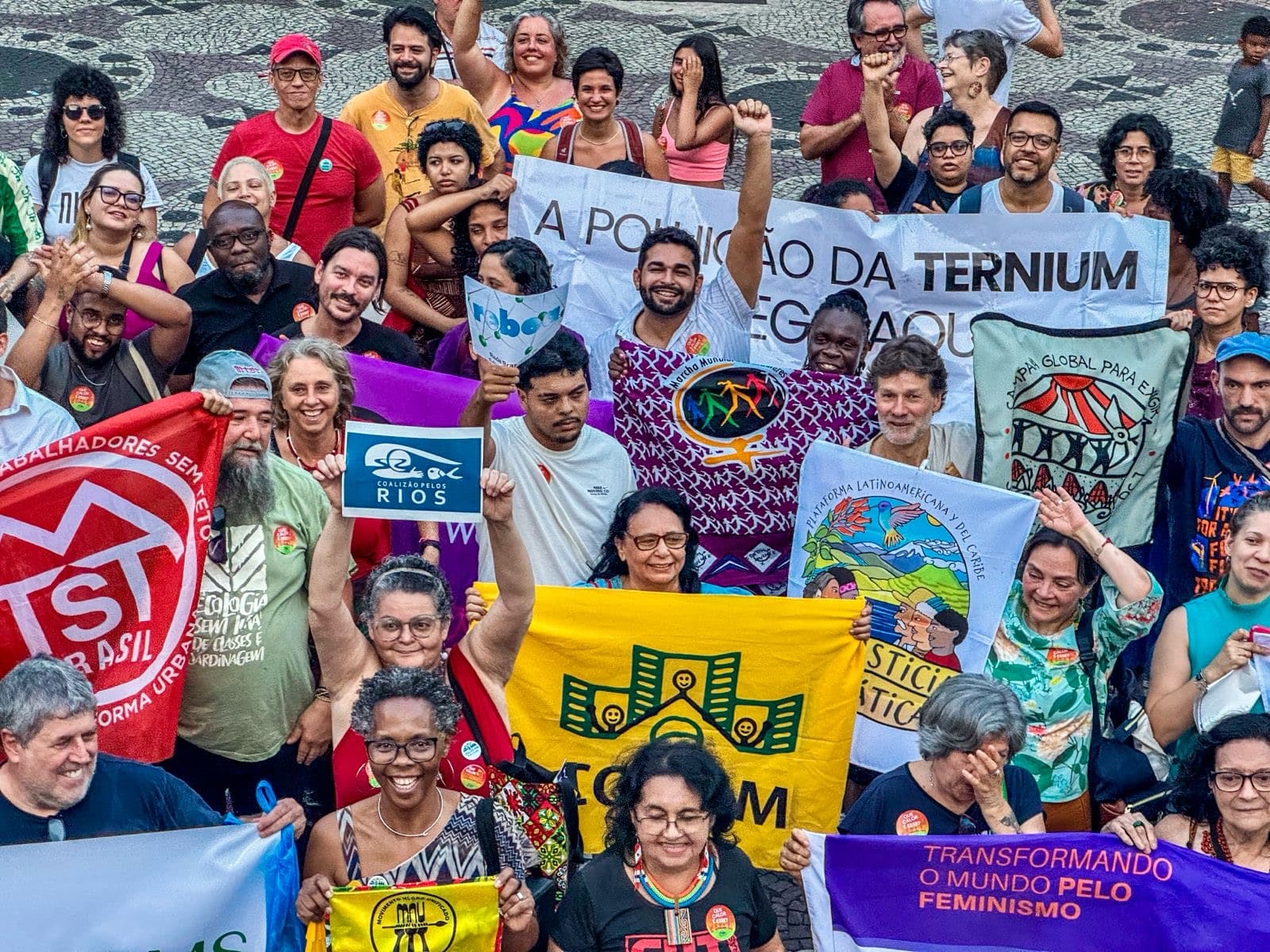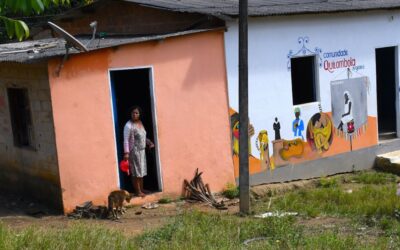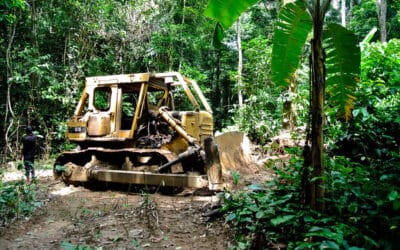Movements are gearing up for the People’s Summit in Brazil during COP30
By Valentina Figuera Martínez, Kwami Kpondzo and Megan Morrissey
For over half a century now, we’ve heard warnings about the catastrophic consequences of forest loss and biodiversity degradation for life on the planet. Climate change isn’t a distant reality anymore; it’s already causing harm around the globe.
South America has experienced record forest fires, with over 490,000 fire hotspots in 2024 and many types of biomes burned. In East Africa, climate change-induced rainfall has caused death and devastation in countries like Sudan and South Sudan, spurring humanitarian crises. There, extractivism destroys biodiversity and also the livelihoods of those affected by conflicts over “natural resources.”
There are differentiated impacts on women, youth, Indigenous peoples, and local communities including Afrodecsendants.
Most governments are failing to halt greenhouse gas emissions and will likely miss a looming deadline to fulfill the ambitions that could avoid climate collapse. There has been no deceleration in the rate of loss of all natural habitats including forests, which is considered in Target 3 of the Kunming-Montreal Global Biodiversity Framework, a 2022 UN decision to halt and reverse nature loss.
The governments and corporations responsible for the environmental crisis now promote carbon and biodiversity markets, which benefit the powerful and the polluters.
People take the lead
Amid these failures, delays, and false solutions, global grassroots movements and organizations are working toward real solutions to the crisis of civilization.
Eunice Guedes, coordinator of the Alliance of Brazilian Women (Articulação de Mulheres Brasileiras) is one of 100 representatives of civil society organizations who recently gathered to plan the Peoples’ Summit for this year during COP 30. This event will be a historic alliance of over 400 grassroots movements and organizations worldwide.
This grassroots process is aimed at building a common agenda and advancing collective action for environmental and climate justice, as well as other demands that put peoples’ solutions at the center.
“We are facing a process of colonization, ethnocide, and patriarchal violence,” Eunice said. “They want to take our culture and traditions away. We must internationalize the struggles and hope. If there is one lesson that we have learned so far, it is that we fight every day because we are the people, not commodities to be sold in New York as carbon markets. We won’t be sold, because we have a history and must be respected.”
Her words remind us of the deep connections between territories and women’s bodies. If lands are sold as commodities to quench the thirst for carbon markets, it means that women’s bodies are equally degraded under the same patriarchal notion of destruction, and both will resist together. This inseparable bond is even more evident when defending collective life.
In November 2025, Brazil will host UN Climate COP 30 in the Amazonian city of Belem do Pará, where Eunice is based. She and other activists who are part of the Peoples’ Summit process—including the Global Forest Coalition and our member groups FASE and Colectivo VientoSur—are clear that the first steps to halting the climate and biodiversity collapse are to phase out fossil fuels and transform the current neoliberal economic system, which hits women in all their diversity harder.
The neoliberal economic model that Global South countries are forced to pursue by international financial institutions, based on extractive industries and the exploitation of labor and women’s bodies, with a highly unequal distribution of benefits and impacts, is driving extinction and perpetuating inequalities.
Meetings in Rio de Janeiro
Participants at the preparatory meeting for the People’s Summit (in Portuguese, Cupula dos Povos) spoke pointedly against the financialization of forests. They highlighted that extractivism, a system of oppression, is one of the main drivers of forest loss and that the Tropical Forests Finance Facility or TFFF will harm people who rely on tropical forests in the big three hotspots of Brazil, Indonesia and DRC.
“It is time to understand that what is done in one part of the world affects the other parts of the world,” an African representative said. “It is therefore important to emphasize people’s solutions in order to have them dominate the world for a better planet and better life.”
The Peoples’ Summit at COP 30 is a space to coordinate and demand real solutions to the harm done by capitalism and widespread extractivism. It is an autonomous process to support advocacy actions alongside the official climate negotiations in Belém.
The grassroots movements and organizations that are part of this process are clear about the right path to move forward: we need to promote agroecology, food sovereignty, artisanal fishing, and the traditional knowledge of Indigenous peoples and local communities who coexist with forests. We also need to protect women’s and environmental rights and fight against all forms of oppression and structural racism, gender violence and bigotry.
A just and inclusive energy transition is essential, as well as ending impunity for acts of violence related to deforestation. Core demands of the People’s Summit include fighting against organized crime and paramilitary groups, rejecting carbon and biodiversity markets, regularization of Indigenous territories and land rights for peasant (campesino) communities, and the recognition of the rights of nature.
Will governments, which have been increasingly co-opted and captured by corporate lobbies, listen? Social movements and organizations are not waiting around to find out. We know that transformative change requires challenging the current development model and the international financial system that forces Global South economies to expand extractivist activities, and perpetuate the destruction of nature, as well as gender and social inequalities.
UN climate conferences and other international policy processes haven’t brought about big policy changes to avoid climate chaos. But civil society and grassroots movements aren’t delaying or shying away from real action to address climate change. On this issue, we lead, and we’ll continue to do so during the People’s Summit ahead of the COP 30 in Belém.




